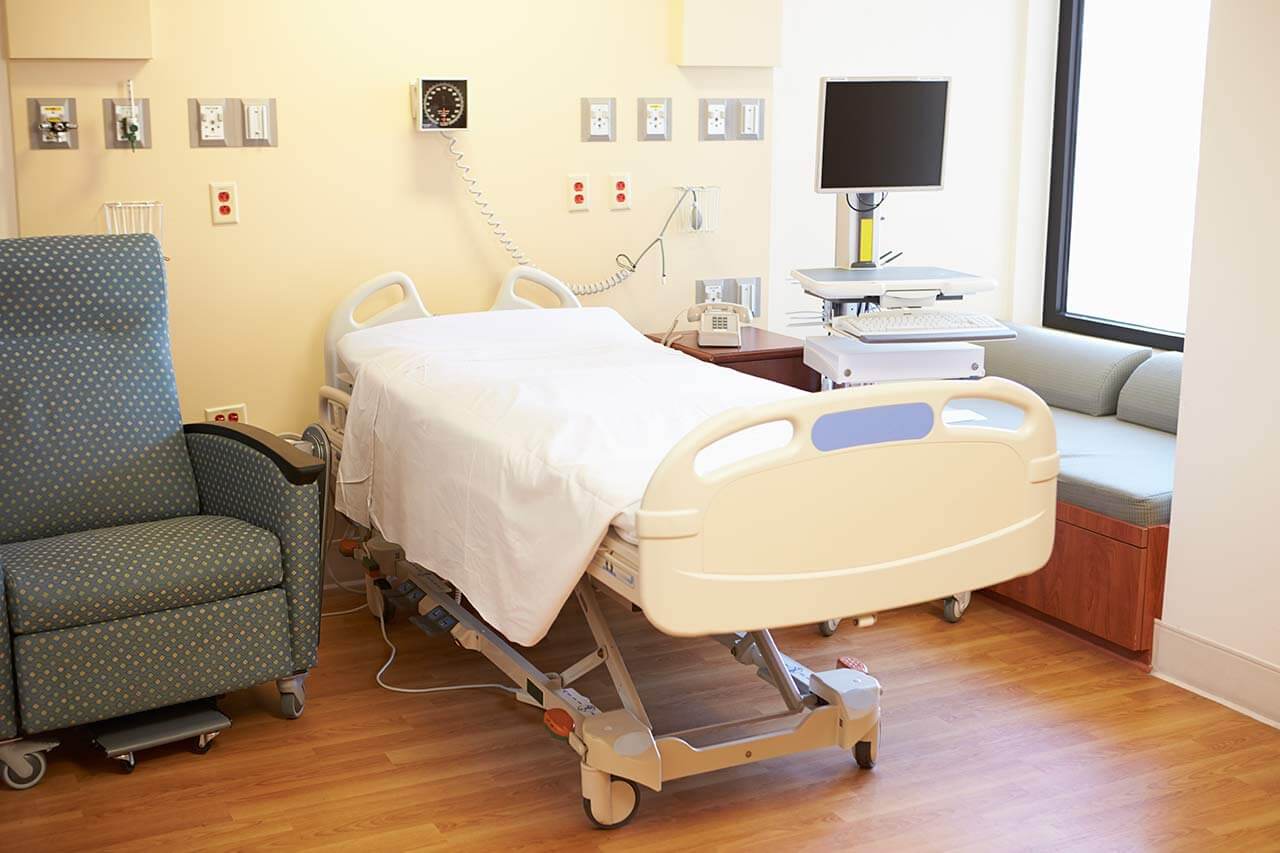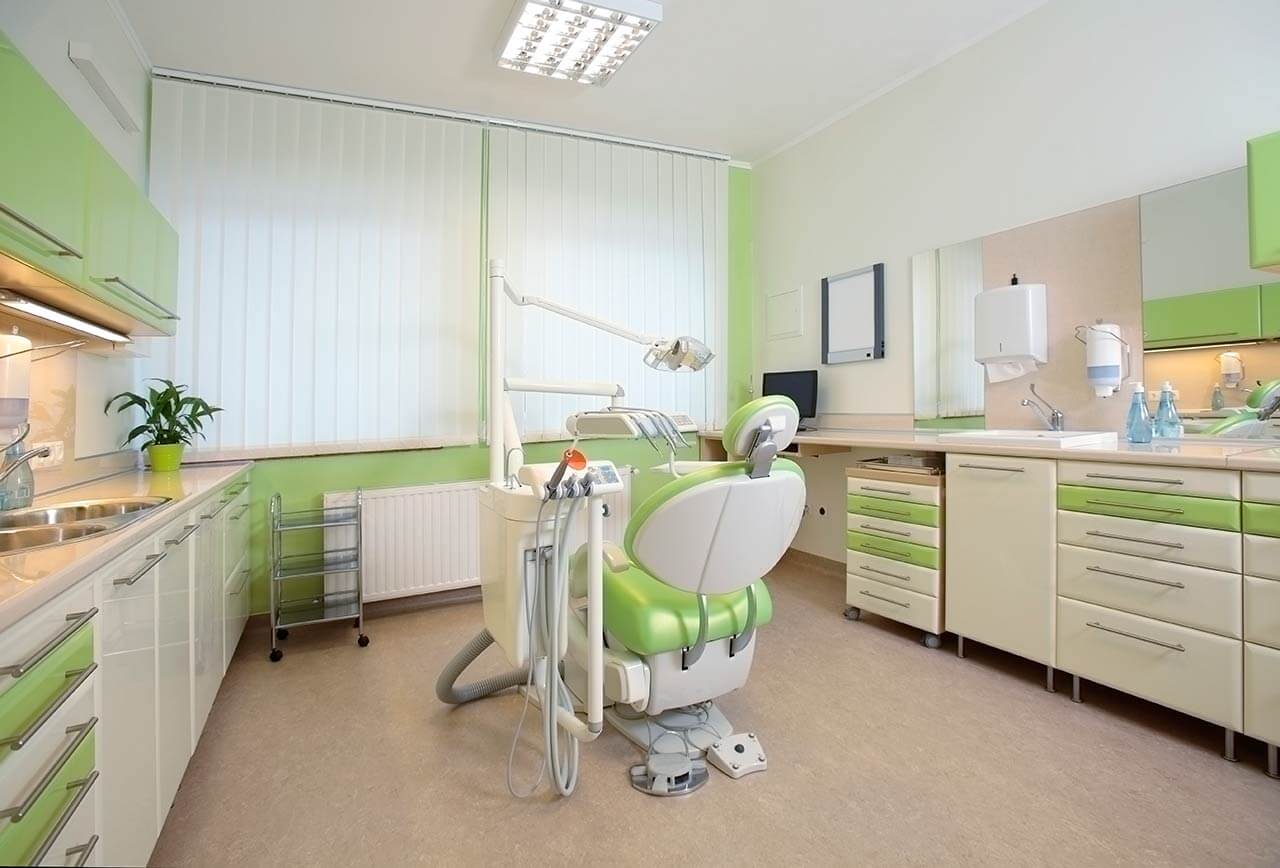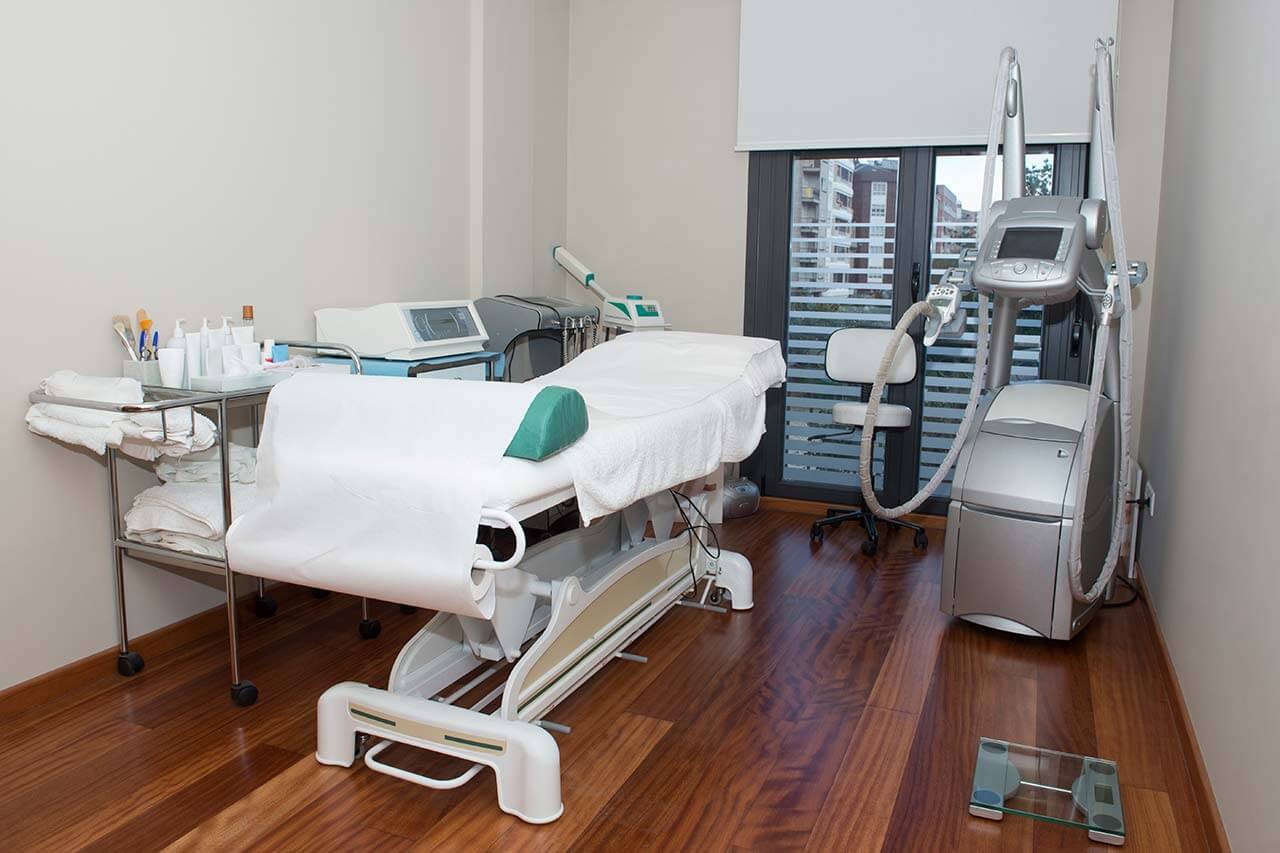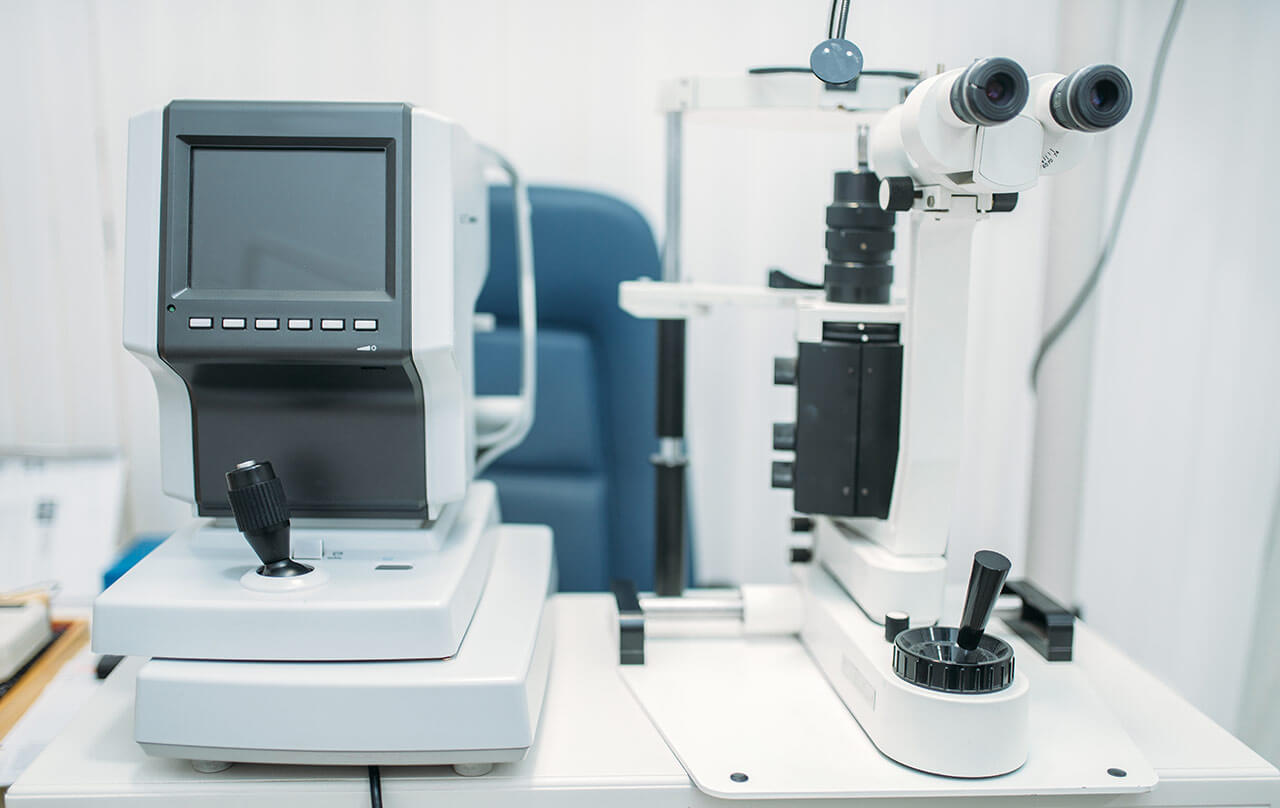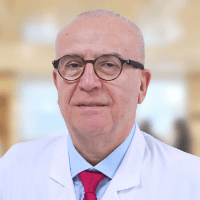
The program includes:
- Initial presentation in the clinic
- clinical history taking
- physical examination
- review of medical records
- laboratory tests:
- complete blood count
- general urine analysis
- biochemical analysis of blood
- inflammation indicators
- indicators blood coagulation
- Immune status
- hormonal analysis
- FSH
- LH
- estrogens
- progesterone
- prolactin
- TSH-basal, fT3, fT4
- ultrasound of the abdomen and pelvis
- transvaginal ultrasound
- gynecological examination
- preoperative care
- laparoscopic diagnostic
- symptomatic treatment
- control examinations
- the cost of essential medicines and materials
- nursing services
- full hospital accommodation
- explanation of future recommendations
Required documents
- Medical records
- Results of hormone blood tests (if available)
- Pelvic ultrasoud (if available)
Service
You may also book:
 BookingHealth Price from:
BookingHealth Price from:
About the department
The Department of Reproductive Medicine at the Hisar Intercontinental Hospital Istanbul offers the full range of assisted reproductive technologies for the treatment of infertility and conception of pregnancy. The priority of the department is in vitro fertilization (IVF), which today is the gold standard in reproductive medicine. The department regularly demonstrates high success rates in the treatment of infertility, therefore it has a worldwide reputation and admits for treatment not only citizens of its country, but also patients from Europe, Asia and the Middle East. The Chief Physician of the department is Prof. Dr. med. Fatih Durmusoglu.
When the couple visits the clinic for the first time they have a consultation with a fertility specialist. After a detailed acquaintance with the clinical situation (duration of infertility, the presence of pregnancies and IVF attempts in the past), the specialist prescribes all the necessary diagnostic tests that will help identify exact causes for the impossibility of conceiving a child – the factors of infertility can be hidden in the health of both partners. Women are most often indicated such tests as ultrasound scanning of the fallopian tubes, hysteroscopy, medical examination for abnormalities in the structure of the genital organs that can provoke repeated miscarriages, laparoscopic examinations, while men need to undergo a spermogram and testicular ultrasound scanning. In addition, both the woman and the man may need to be tested for sexually transmitted diseases and certain hormonal tests. The accurate diagnostics allows the procedure to be carried out with high efficiency, and therefore the department has at its disposal modern diagnostic rooms with the latest generation of medical equipment.
The IVF procedure consists of the following stages:
- Ovarian stimulation. A woman is prescribed special hormonal drugs. They cause multiple follicles to mature in the ovaries at the same time, which increases the chances of pregnancy. In each of the follicles, one egg matures. The collection of eggs is carried out using the follicular puncture. The first ultrasound scan after starting an IVF program is usually done on the 5th or 6th day of stimulation to assess ovarian response (follicular growth dynamics) and endometrial thickness (lining of the uterus). Prior to the active follicular growth, the ultrasound scan is performed 1 time in 4-5 days, then the ovaries are examined more often – 1 time in 2-3 days.
- Follicular puncture. After the completion of ovarian stimulation, it is necessary to extract the eggs from the follicles. For this purpose, a puncture is performed. The procedure is performed under ultrasound guidance in the operating room under intravenous anesthesia. Semen collection is performed on the same day and time as the puncture.
- Oocyte fertilization and embryo culture. The embryologist fertilizes the obtained eggs with processed sperm in the laboratory. The day of the beginning of embryo cultivation is the day after the follicular puncture. The embryos obtained as a result of fertilization are cultivated up to 5-6 days, i.e. to the blastocyst stage. Then they are either transferred to the uterus or cryopreserved.
- Embryo transfer. Technically, the embryo transfer procedure is quite simple and is carried out under the ultrasound guidance, which allows tracking the progress of the catheter with the embryos. The doctor exposes the cervix in the mirrors and inserts a catheter with embryos through the cervical canal into the uterine cavity. With the help of a syringe, embryos are "pushed out" of the catheter. The embryo transfer is the final stage of the IVF program.
- Pregnancy test. 10-14 days after the embryo transfer, the woman undergoes a test to confirm pregnancy.
The medical team of the department works in accordance with strict confidentiality rules – the information about the results of diagnostics, the success of the IVF procedure and other treatment measures cannot be disclosed to third parties, including parents, brothers, sisters.
The department's range of medical services includes:
- Diagnostic procedures
- Ultrasound diagnostics
- Hormone tests
- Hysterosalpingography
- Laparoscopy
- Hysteroscopy
- Folliculometry (ovulation monitoring)
- Spermogram (sperm quality assessment)
- Preimplantation genetic diagnosis in order to exclude genetic abnormalities in the embryo
- Therapeutic procedures
- In vitro fertilization (IVF)
- Intrauterine insemination
- Intracytoplasmic sperm injection (ICSI)
- Embryo cryoconservation
- Testicular sperm aspiration (TESA)
- Testicular sperm extraction (TESE)
- Sperm and testicular tissue cryopreservation
- Assisted hatching
- Other diagnostic and therapeutic options
Curriculum vitae
Prof. Dr. med. Fatih Durmusoglu studied human medicine at the Faculty of Medicine of the Uludag University, where he also underwent specialized training in gynecology and obstetrics. The doctor underwent his internship in the Department of Gynecology and Obstetrics at the Zekai Tahir Burak Hospital. From 1987 to 1989, he was Postdoctoral Fellow in the Department of Reproductive Endocrinology and Fertility Treatment at the Faculty of Gynecology and Obstetrics of the Johns Hopkins University. In 1992, the doctor became Assistant Professor, and in 1999 he earned the title of Professor. From 1989 to 2011 he worked as Lecturer in the Department of Gynecology and Obstetrics of the Faculty of Medicine at the Marmara University, and from 2005 to 2011 he headed this department. Since 2004, Dr. Durmusoglu has been Board Member of the Turkish Family Planning Association. As of today, he is the Head of the Department of Reproductive Medicine at the Hisar Intercontinental Hospital Istanbul.
Clinical Interests
- Treatment of infertility.
- Treatment of symptoms of menopause.
- Treatment of menstrual irregularities.
- Treatment of polycystic ovary syndrome.
- Treatment of hormonal disorders of ovarian origin.
- Treatment of endometriosis.
- Laparoscopic surgery.
- Hysteroscopic surgery.
- In vitro fertilization (IVF) and other assisted reproductive technologies.
Memberships in Professional Societies
- Turkish Society of Reproductive Medicine.
- Istanbul Association of Obstetricians and Gynecologists.
- American Society for Reproductive Medicine.
- North American Menopause Society.
- American Association of Gynecologic Laparoscopists.
Photo of the doctor: (c) Hisar Hospital Intercontinental
About hospital
The Hisar Intercontinental Hospital Istanbul is a private multidisciplinary medical facility, which provides top-class diagnostics and treatment in the most comfortable conditions for each patient. The hospital was founded in 2006 and today can be proud of an excellent medical and technical base, excellent professional staff, authority on the national and international medical arena.
The medical complex has 170 beds for inpatient care, 7 high-tech operating rooms for surgical interventions of varying degrees of complexity, as well as an intensive care unit with 36 beds. The hospital represents almost all fields of modern medicine, while a special focus is made on ophthalmology, plastic surgery, reproductive medicine and dentistry.
The hospital thoroughly observes the safety of patients. It has state-of-the-art computerized medical system PYXIS, which recognizes nurses by fingerprints. The system improves the efficiency of dispensing the necessary drugs to the patient, each time determining the type and dosage of the drug dose using wireless confirmation. As for the innovations, it is also impossible not to mention the advanced top-class computed tomography system Aquilion One, as it plays an important role in the early diagnostics of many diseases. As of today, Aquilion One is the most powerful and innovative scanner in the world, which can provide the accurate high-resolution images using the lowest radiation dose.
The outstanding quality of the medical services in the hospital is recognized by the prestigious Joint Commission International (JCI) certificate, which it received in 2006 for the first time. In 2017, the hospital was successfully recertified. During the certification procedure, the compliance of the medical facility with more than 1,500 criteria was checked. These included treatment safety, qualifications of medical personnel, quality of surgical treatment and anesthesia, etc.
It should be noted that the medical complex has a helipad for transporting patients, which confirms the readiness of the hospital to provide medical care in emergency cases.
Photo: (c) depositphotos
Accommodation in hospital
Patients rooms
The patients of the Hisar Intercontinental Hospital Istanbul live in cozy and comfortable rooms with all the necessary amenities. Each patient room has an ensuite bathroom with shower and toilet. The standard patient room includes an automatically adjustable bed, a bedside table, a wardrobe, a small sofa for receiving visitors, a TV and a telephone. If desired, the patient can live in the enhanced-comfort room, which is additionally equipped with a safe, a refrigerator and upholstered furniture.
Meals and Menus
The patient and the accompanying person are offered tasty and balanced three meals a day. If for some reason you do not eat all foods, you will be offered an individual menu. Please inform the medical staff about your food preferences prior to treatment.
Further details
Standard rooms include:
Accompanying person
During the inpatient program, the accompanying person can live with the patient in a patient room or a hotel of his choice. Our managers will help you choose the most suitable option.
Hotel
During an outpatient program, the patient can stay at the hotel of his choice. Our managers will help you choose the most suitable option.
